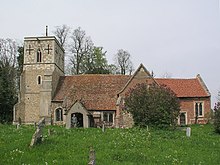Sir George Downing, 1st Baronet
Sir George Downing, 1st Baronet (c. 1623 – c. 19 July 1684) was an Anglo-Irish diplomat and financial reformer, who held office first under the Commonwealth of England, then Charles II.
As Teller of the Exchequer, he carried out major reforms in public finance, including securing passage of the Navigation Acts, intended to protect English maritime commerce, especially from the Dutch Republic.
[5] In 1654, he married Frances, sister of Charles Howard, 1st Earl of Carlisle and distantly related to the Duke of Norfolk, the leading Catholic family in England.
[7] In 1645, he sailed for the West Indies on a ship that also carried slaves, as a preacher and instructor of the seamen, and arrived in England some time afterwards, becoming chaplain in the regiment of Colonel John Okey, who had allegedly sponsored Downing's education in America.
As English ambassador, Downing viewed intelligence gathering about Dutch intentions and Royalists plots as a major part of his function, tactics he later employed against regicides and other republicans there.
Political union between the two nations had already been rejected by the Dutch in 1654, as was a proposal for a military alliance against Spain in return for a promise to exempt the Netherlands from the provisions of the Navigation Act, but Cromwell persisted.
In the aftermath of the Restoration, de Witt hoped that Charles II would be amenable to the negotiation of a defensive triple alliance between the Netherlands, England and France that would cover trade, maritime issues and defence.
He had emphasised the importance of Baltic markets for English merchants to Thurloe during his first embassy, which had given him an insight into the economic policies of the Dutch government, and his intelligence network then had allowed him to discover how its traders were able to evade the Navigation Act 1651.
The talks continued until early 1662, when Charles' improving financial position and Downing's advice not to offer concessions led to further English demands.
[19] In 1664, Lord Arlington, gained royal favour and he and his client, Sir Thomas Clifford, began to cooperate with the king's brother James, Duke of York.
[22] During the period from 1657 to 1664, Downing, with his New England background and residency in The Hague, was ideally placed to advise Charles II on the political situation in North America and the Dutch Republic.
Charles and his Lord Chancellor, the Earl of Clarendon, faced with the Dutch delays in implementing the terms of the 1654 peace, widespread smuggling operations based on New Amsterdam and the exclusion of English traders from the East Indies and West Africa,[31] decided to assert English claims to New Netherland, and to use Downing as their agent to claim to de Witt that Charles was merely asserting his rights, not making a declaration of war.
[35] This previously little-used move, opposed strongly by Lord Clarendon as an encroachment on the royal prerogative,[5] effectively made permanent the parliamentary appropriation of supplies (meaning that Parliament gained the right to specify that tax revenues should be used only for a particular purpose, rather than spent as the King's government saw fit).
[1] He was buried in the family vault built in All Saints' Church, Croydon, Cambridgeshire, leaving a substantial fortune, which critics claimed he had amassed partly through his exceptional meanness about money.
[3] This characteristic was echoed by Samuel Pepys, although Downing's rise was considered undesirable in a generally conservative society, and an achievement that generated suspicion and envy.
[37] Despite his undoubted political, diplomatic, and financial ability, Downing has often been maligned due to his willingness to betray former comrades in order to win favour from his current masters.
[39] He published a large number of declarations and discourses, mostly in Dutch, enumerated in Sibley's biography, and wrote also "A True Relation of the Progress of the Parliament's Forces in Scotland" (1651), Thomason Tracts, Brit.


